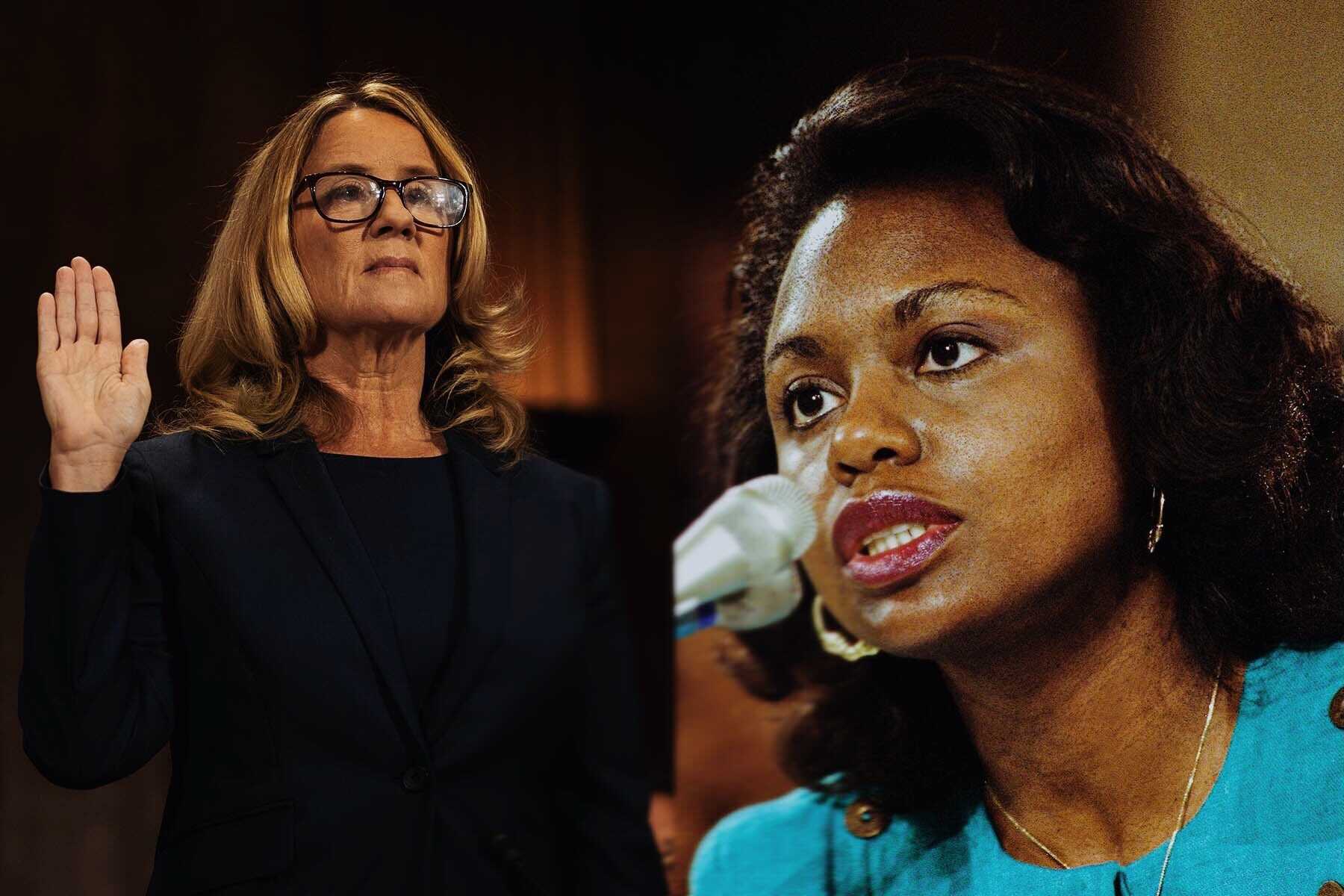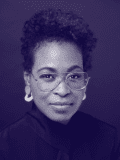The Supreme Court confirmation hearings of Justices Brett Kavanaugh in 2018 and Clarence Thomas in 1991 echoed each other to many watching, as claims of sexual misconduct by both men were made public by a pair of previously unknown women thrust into history.
Their emotional and deeply personal testimony did not stop the confirmation of either man to a lifetime judicial appointment, and the parallels drawn between Christine Blasey Ford and Anita Hill were immediate.
Thirty years after Hill’s testimony and three years after Blasey Ford’s, both women say they think they and others who accuse powerful people of misconduct are largely believed but that their truths still remain inconvenient for far too many in society. They spoke to each other for the first time publicly in the latest episode of the “Because of Anita” podcast, which revisits Hill’s seminal three days of testimony and the lessons they hold today for the workplace.
In a key moment in the conversation, the pair of academics whose careers are rooted in fact-finding contemplated society’s willingness to believe survivors of sexual harassment and assault. In her own case, Blasey Ford said that during her testimony, “I did feel that the people in the room did believe me.”
“Sitting in that room, in that chair, and seeing on people’s faces … and thinking that they did believe me,” she said. “If I had to bet, I think most of them did.”
Hill said she thinks many people do believe survivors’ stories but are afraid to acknowledge it because of an unwillingness to act.
“They don’t want to take the responsibility — especially if you’re talking about someone who is really powerful who is being accused — they don’t want to take responsibility for fixing the problem,” Hill said. “If you ask them ‘If it were true, what would you do about it?’ they typically don’t have a response.”
Hill worked at the Department of Education and the Equal Employment Opportunity Commission as a legal adviser to Thomas in the early 1980s. In graphic testimony before the Senate Judiciary Committee a decade later, Hill said Thomas made unwanted sexual advances, discussing pornography, commenting on her clothes and his anatomy, and asking her out on dates.
Hill, 65, is a Brandeis University professor teaching on social policy, law and women’s studies. Last month, she published “Believing: Our 30-Year Journey to End Gender Violence.”
Blasey Ford testified that Kavanaugh was drunk and sexually assaulted her at a house party when they were teenagers. Now 54, she is a research psychologist at the Stanford University School of Medicine and a professor at Palo Alto University.
Both Thomas and Kavanaugh vehemently denied the accusations against them.
The roughly hour-long podcast exchange reveals that both women watched the other’s Senate testimony with interest and empathy. In one example, Hill recounts meeting Blasey Ford in 2019 and the “protective instinct” she felt toward her in the months after her testimony.
“When we met, one of my concerns was that you were going to be okay,” Hill recalled. “Talking to you … I did leave feeling assured that you were going to be able to handle what was going on in your life, that you had this strong core that was going to get you through it.”
Blasey Ford said it was Hill who inspired her to overcome her own reluctance and fear of coming forward to tell her story.
“I would never have thought in my mind that I needed to say something if it wasn’t for Anita,” Blasey Ford said. “If Anita had never testified and we had never seen her do that, it would not have occurred to me that it was even something we were supposed to do, or that a person should do. I would’ve thought, ‘There goes just another person climbing the ladder who did a really bad thing.’”
Both women talked about their decision to testify as a responsibility to the country that was not personal — and one that came with a cost.
“I still think people believe that people who come forward, like you and I did, have some kind of personal vendetta against a party or an individual,” Hill said. “It wasn’t that at all for me. One of the most damaging things we cast on people who come forward is that they’re doing it for some individual, personal gain, when in fact we know that the risks are so high for them personally … People do the right thing and they end up suffering.”
Thomas’ confirmation hearing was fraught with issues of gender and race, as both the accuser and the accused are Black Americans. In the podcast, Hill explores the racial dynamics of her situation in relation to Blasey Ford’s experience.
Asked about the New York Times full-page ad, “In Defense of Ourselves,” taken out by 1,600 Black women in support of Hill during her November 1991 hearing, Hill said “it meant a lot” and helped her to not feel alone.
“There was so much effort to divide me from African Americans, to create the idea that Thomas was representing the race and that I was doing something that was against Black people,” said Hill, who added that the ad is framed in her office. “To have that articulation of support and just the explanation of the experiences of African American women was something that was just soul saving, because it helped restore me back to where I always felt that I was — a member of the community of Black people.”
A similar ad was taken out in The Times by 1,600 men in support of Blasey Ford, which Hill said is a sign of progress.
“When I saw that poster, one of the things it said to me is that things have changed,” Hill said.
Salamishah Tillet, co-host of the podcast from Pineapple Street Studios and the Meteor, said she was struck by the intimacy and sincerity of the conversation, which she thinks will help remind audiences of Hill’s and Blasey Ford’s humanity.
“We get to see them as more fully fleshed out individuals, not just locked into the moments of their confirmation hearings,” which have allowed some people to villainize or castigate them, said Tillet, herself a rape survivor and founder of a A Long Walk Home, a national art organization based in Chicago that empowers young people to end violence against girls and women.
“They are these women who are brilliant individuals in their own careers, and yet they have this thing in common that no one wants to have, a civic duty to share the most traumatic events of their life in public,” Tillet said. “It only makes them more believable.”






